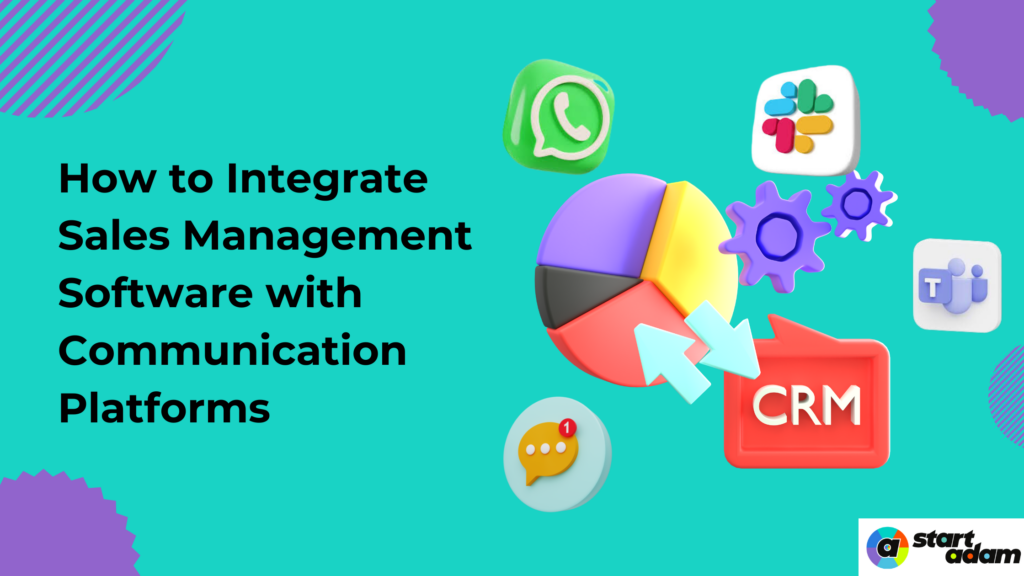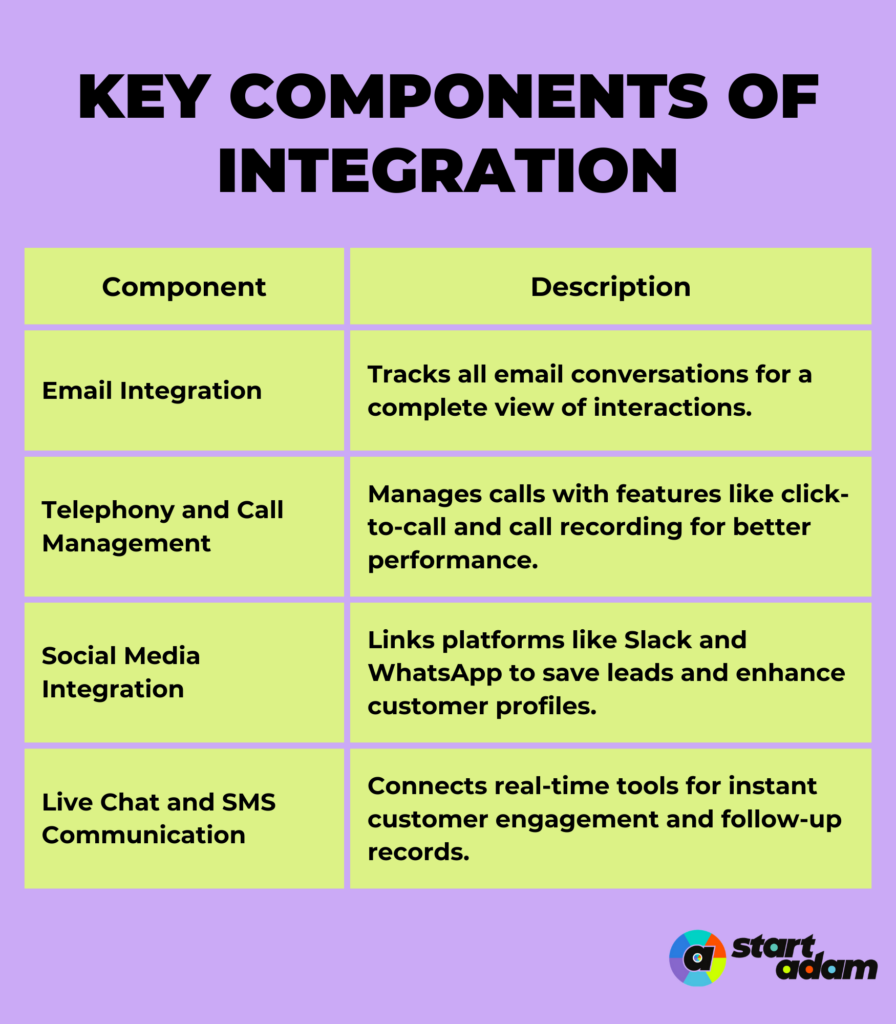How to Integrate Sales Management Software with Communication Platforms
September 20, 2024
September 25, 2024
5 min

Managing customer inquiries across multiple platforms can be challenging for a business owner. A survey shows that 74% of customers experiencing easy transitions to a service rep will return to self-service.
Poor customer experiences can lead to brand switching, highlighting the importance of effective communication. This is where CRM software becomes essential. It streamlines interactions across various channels, enabling swift responses and enhancing customer engagement.
Learn how implementing sales management software can improve your customer service and drive success for your business.
What is Sales Management Software?
Sales management software automates lead tracking, pipeline management, and performance analytics, optimizing sales processes. It provides insights into team performance and customer interactions. By improving productivity, it allows sales teams to focus on building relationships. Ultimately, it drives revenue growth through greater efficiency and effectiveness.
What is a Communication Platform?
As the name suggests, a communication platform is a digital tool that streamlines communication, linking individuals and enabling the exchange of information regardless of distance. This makes it essential for modern collaboration in both personal and professional settings.
How to Integrate Sales Management Software with Communication Platforms?
Integrating sales management software with your communication platforms can streamline operations and improve efficiency. Here’s a step-by-step guide to help you achieve seamless integration:
Identify Communication Channels
The first step to integrating sales management software with communication platforms is to identify which communication channels your business needs. Whether email, telephony, social media, live chat, or SMS, you must choose platforms that align with your customer’s preferences and business goals.
Choose the Right CRM or Sales Management Software
Selecting a CRM that supports multi-channel integration is critical. The CRM should offer automation, call logging, email tracking, and other tools necessary for efficient communication. Make sure to choose software that fits the scale and scope of your business.
Implement API Integrations
Using APIs or pre-built integrations between your CRM and communication platforms will ensure seamless data exchange. These integrations will help connect your email, phone, and social media tools to the CRM, allowing information to flow between systems without manual input.
Train Your Team
Proper training is essential for successful integration. Sales teams should be trained on how to use the integrated platforms effectively, including how to log communications, access customer data, and leverage the insights provided by the system for better sales outcomes.
Key Components of Integration
Integrating various communication channels with sales management software enhances productivity and ensures all interactions are tracked efficiently. Below are the key components to focus on when integrating your platforms:

Benefits of Integration
Integrating sales management software with communication tools brings significant advantages to your team’s performance. Here are some key benefits to consider:
Better Access to Customer Data
- Provides teams with real-time customer data integration.
- Centralized data supports better decision-making.
- Enables faster responses and personalized services based on comprehensive customer history.
Improved Communication Channels
- Combines tools like Slack, Microsoft Teams, and WhatsApp into one platform.
- Enhances clarity and efficiency in communication.
- Drives higher engagement and conversion rates.
Efficient Sales Workflows
- Simplifies tracking and automating communications.
- Frees up sales teams to focus on key customer interactions.
- Speeds up the sales process through efficient log and performance management.
Overcoming Common Challenges
While integrating sales management software with communication tools offers many benefits, it also comes with certain challenges. The following strategies can help you address those:
Data Isolation
Data isolation is a major challenge when integrating sales software with communication tools. Ensuring all platforms are correctly linked is essential for smooth information flow. Centralized storage and real-time updates are critical for maintaining complete customer profiles.
Setup Difficulties
Connecting multiple systems can be tricky. Hiring experienced IT professionals can help improve compatibility among these platforms. Their expertise not only streamlines the setup process but also reduces potential problems, saving valuable time in the long run.
Boost Sales with Integrated Software and Communication
Sales management software enables automation and data-driven insights when integrated with communication platforms. These tools help your business deliver personalized and efficient customer experiences. By combining sales software with communication tools, companies can increase sales, improve customer satisfaction, and achieve greater success in operations.
FAQs on Sales Management Software Integration
1. What is the main objective of sales management?
The main objective of sales management is to oversee and optimize the sales process to drive revenue growth, expand market share, improve customer satisfaction, enhance sales productivity, develop a strong sales team, and gather market intelligence.
2. What are the integration requirements of a CRM tool?
CRM integration requires APIs, compatible data formats, secure authentication protocols, real-time synchronization capabilities, and support for communication platforms like email, telephony, social media, and other business applications.
3. What is CRM API integration?
CRM API integration connects CRM software with other systems or applications using APIs, enabling seamless data exchange and automation of processes such as customer interactions, reporting, and communication management.
4. What are CRM connectors?
CRM connectors are tools or software that link a CRM system with other platforms (e.g., email, social media, or telephony), enabling data transfer and synchronized operations between these different systems.
5. How can CRM be integrated into the organization?
CRM can be integrated by identifying key systems to connect (e.g., email, telephony), using APIs or connectors for data synchronization, ensuring staff training, and aligning the CRM with organizational goals and workflows.
6. What is a CRM ticketing system?
A CRM ticketing system manages customer support requests by creating, tracking, and organizing tickets. It ensures efficient handling of customer issues, improves response times, and centralizes communication for better customer service.
Related Reads
How to Integrate CRM Systems with Sales Productivity Tools
How Connected Platforms Will Shape Communication in the Future